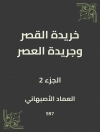Geoffrey Chaucer’s ‘The Book of the Duchess’ presents a poignant exploration of loss and mourning, cleverly woven into a dream vision format. This narrative poem, composed around 1368, ultimately serves as a tribute to the late Blanche of Lancaster, the wife of John of Gaunt. Chaucer employs an intricate blend of allegory and personal lamentation, employing a diverse range of metrical patterns to create a rich, lyrical texture that reflects his mastery of Middle English. The poem engages deeply with themes of love, memory, and the transience of life, placing it within the broader context of medieval literature’s fascination with dreams and the subconscious realm of human emotions. Chaucer, often hailed as the father of English literature, was significantly influenced by his experiences in the court of Edward III and his exposure to various literary traditions, including French allegory and Italian verse. His interactions with the aristocracy and the burgeoning middle class provided a unique lens through which he could articulate his observations on love, social status, and the human condition, making ‘The Book of the Duchess’ a seminal work reflecting the complexities of his time. This book is highly recommended for readers seeking a profound understanding of medieval literature and the intricacies of human emotion. Chaucer’s ability to infuse personal grief into an artistic framework not only captivates the reader but also invites reflections on universal themes of love and loss. ‘The Book of the Duchess’ remains a timeless exploration that resonates with any reader who has experienced the depths of longing and remembrance.
Giới thiệu về tác giả
Geoffrey Chaucer, often referred to as the Father of English literature, was a seminal figure in the development of English poetry. Born circa 1343, Chaucer became a prominent courtier, diplomat, and civil servant, but is best known for his contributions to literature. His most notable work, ‘The Canterbury Tales, ‘ is celebrated for its vivid storytelling and complex characters. However, his oeuvre also includes a significant yet often underappreciated poem, ‘The Book of the Duchess, ‘ which is thought to be his earliest major work, dating from the late 1360s or early 1370s. The poem is an elegy written for Blanche of Lancaster, the first wife of John of Gaunt. In this dream-vision poem, Chaucer employs the motif of courtly love and the metaphor of a hunt to craft a narrative that is both an homage to the deceased and a reflection on themes of loss and consolation. Chaucer’s use of the English vernacular was pioneering, signaling a shift from the dominant use of French and Latin in literature, and firmly establishing English as a language of high culture and serious, sophisticated literary endeavor. His literary style, characterized by its humor, astute observations of human behavior, and use of irony, has cemented his legacy as one of the most influential writers in the English canon (Morris, 1895; Spearing, 1970). Chaucer’s work predates the formal establishment of a British literary tradition, and as such, his innovations laid the groundwork for future English poets and storytellers.












